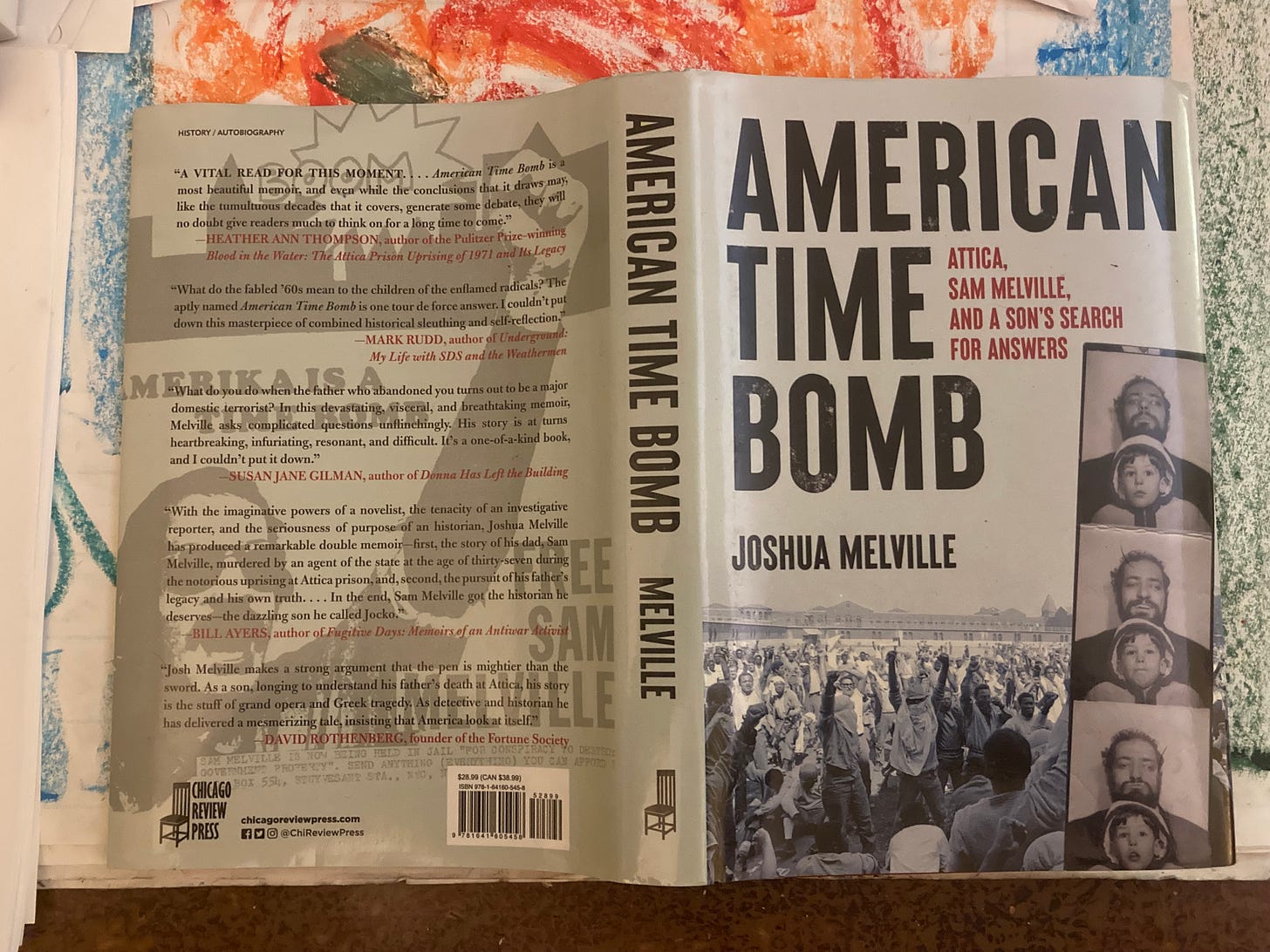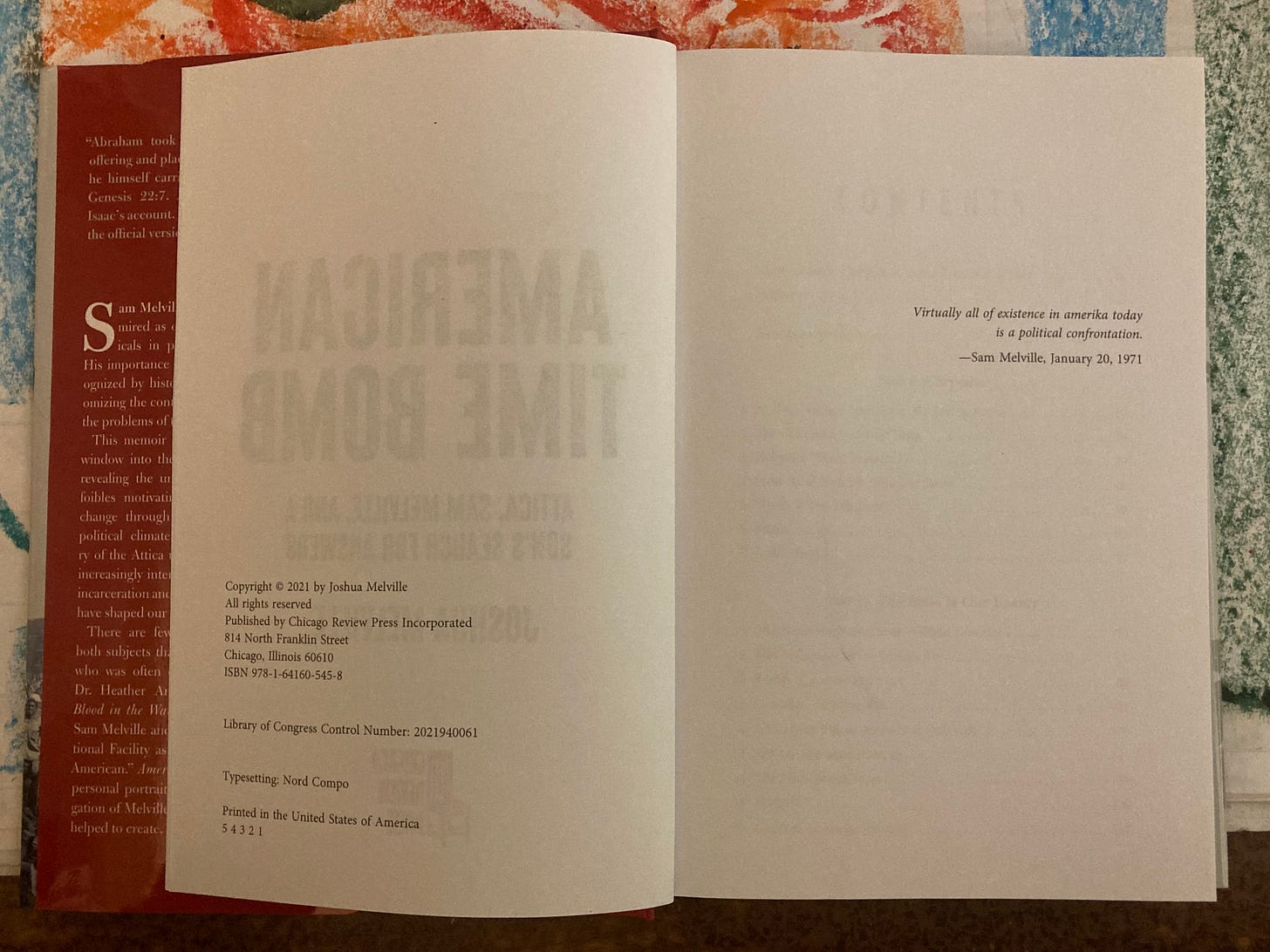An Anatomy of the Laundry (i) and American Time Bomb (ii)
From bomber Sam Melville at Attica Correctional Facility and son Joshua at Chicago Review Press
That looks like an editor’s title. An Anatomy of the Laundry?
Robert Burton named his own book The Anatomy of Melancholy. It’s a title that Sam, who named himself after Herman Melville and carried through life his Moby-Dick, would have had in mind, another encyclopedic paideia.
Henry Gray had called his atlas, that same decade as The Whale, just Anatomy. 1 hundred years later Northrop Frye called his guide Anatomy of Criticism.
Northrop cut apart, what the word’s Greek prefix and verb mean, all of literature, as Henry had displayed in parts the one human body we all share.
Not just one way of looking at things. The way they are. The material organs and structures of our kind.
Whether it was author Sam Melville, or editor Joshua, someone wrote An Anatomy of the Laundry as a bit of swank across the top and got it wrong. There is no anatomy of the laundry here.
Sam writes rather economy. The economy of the laundry.
He speaks of costs, and pay. How do those prisoners who work in the laundry support the pigs? How may they instead strike back?
I don’t follow the calculations. They rely on an understanding of the work that Sam holds in common with his audience.
As when his father organized among cab drivers, the man handing the flyer to you explains it then you take it away to talk over with your friends before the vote. At the end Sam reveals himself, not by name, but as another laundry worker.
A good thing, too, since he began by referring to those he addresses in the most offensive terms. You can read them for yourself.
What is this all about? The editor does not date or give a provenance for this document in the apparatus of the book.
I hope to find his discussion within the text as I read. Right now it is just there. What I read now is that Sam argued as a worker to his fellows both to down tools at the laundry and to boycott its services.
That is, he did not argue as a Vietnamese Communist would have done 40 years beforehand, urging the political prisoners to take over the laundry to run a clandestine organization. He did not argue as the Provos did, also in 1971, that prisoners of war must not work.
Sam was an American addressing the common criminals as politicals, both to unionize within a business and to boycott it as consumers. Romantic?
God, yes. And non-violent as well. Still, why does Joshua show this one work of his father, in a book devoted to a thought leader in political action? I need to read the book.
This was the second Viet Nam letter of 2 on American Time Bomb by Joshua Melville. The first posted on January 17, 2023.
This was the first Viet Nam letter of 3 so far on An Anatomy of the Laundry by Sam Melville. The second posted on February 1, 2023 and the third on February 4, 2023.
Viet Nam letters respects the property of others under paragraph 107 of United States Code Title 17. If we asked for permission it wouldn’t be criticism. We explain our fair use at length in the letter of September 12, 2022.
The colophon of these Viet Nam letters, directly above, shows the janitor speaking with poet David A. Willson on a Veterans Day.










Imagine being Joshua as a boy whose father was the mad bomber, sentenced to pay for his crimes. Imagine him receiving news that his wild Daddy had been killed in the act of being wild and bad yet again. Then imagine him speaking with you, his contemporary, descended from another rebel father (albeit less violently inclined) whose sense of justice moved him in very different but somehow compatible ways. Not every human could or would want to participate in this conversation between survivors. Thank you for letting me eavesdrop. Please be kind.